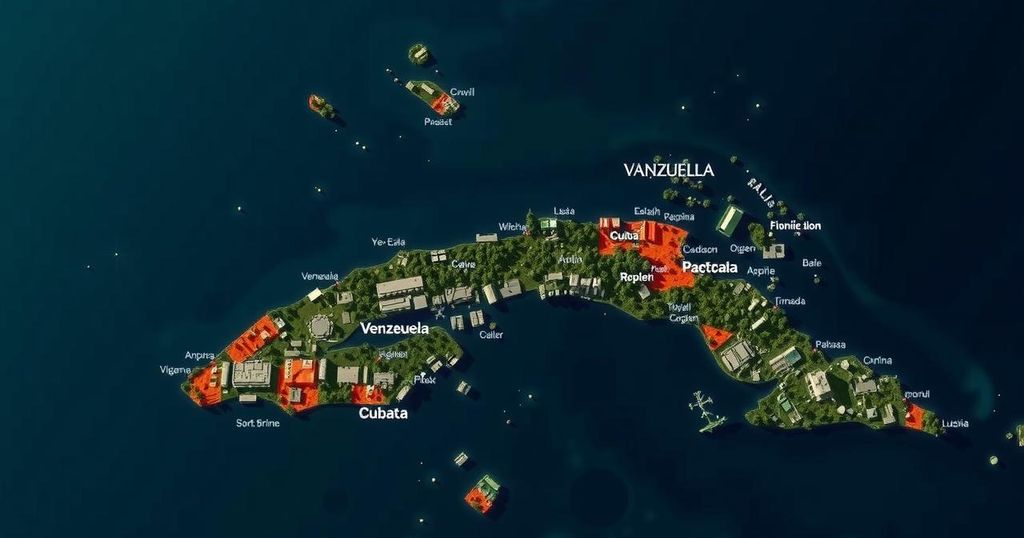Russia Considers Deploying Missiles in Cuba and Venezuela to Challenge the West

Alexei Zhuravlev, a high-ranking Russian legislator, has proposed placing missiles in Cuba and Venezuela as a response to Western support for Ukraine. This idea draws parallels to Cold War tensions, with the intention of enhancing military capabilities in Latin America while sending a strong warning to the US and its allies. In light of these developments, both Cuba and Venezuela’s roles in Russia’s military strategy appear to be solidifying.
Recently, Alexei Zhuravlev, the first vice president of the Russian Defense Committee, has revived the contentious proposition of stationing Russian missiles in Cuba and Venezuela. This suggestion is rooted in a desire to respond aggressively to the United States due to its support for Ukraine during the ongoing conflict. Zhuravlev asserts that such a deployment would serve as a formidable warning to nations aiding Ukraine, emphasizing that military actions will continue until Ukraine capitulates. He advocates for supplying medium-range missiles to these nations and highlights the necessity of enhancing their air defense capabilities, mirroring actions taken by the US in aiding Poland.
Moreover, Zhuravlev’s remarks echo sentiments previously expressed by Sergei Mironov, another Russian legislator, who indicated that deploying missiles in Cuba would signal a strong stance against Western actions. The rhetoric of military alliances has been revitalized since the onset of the Ukraine conflict, with Russia enhancing relations with Cuba through military exchanges and naval visits. As tensions rise, it appears that both Cuba and Venezuela could potentially play pivotal roles in Russia’s military strategy in Latin America.
Overall, the reintroduction of military strategies reminiscent of the Cold War is raising alarms in the international community. As the integration of Russian military assets into Cuba and Venezuela solidifies, the geopolitical landscape continues to shift, necessitating close monitoring of any developments between these nations and the United States.
The suggestion to install Russian missiles in Cuba and Venezuela stems from a historical precedent dating back to the Cold War and the Cuban Missile Crisis of 1962. Alexei Zhuravlev’s recent comments reflect growing frustration within the Russian government regarding Western support for Ukraine. The escalation of military alliances and the rhetoric surrounding defense capabilities signify a potential revival of tensions reminiscent of that era. Furthermore, the geopolitical implications of such deployments raise concerns about regional security and US relations with Latin America.
In conclusion, the proposal to install Russian missiles in Cuba and Venezuela reflects an escalating tension between Russia and the West, particularly in light of the ongoing conflict in Ukraine. Government officials argue this measure could effectively communicate Russia’s stance against Western interventions, while historical context highlights the enduring implications of Cold War politics. The situation warrants careful surveillance as it develops, given its potential to reshape international relations and security.
Original Source: havanatimes.org








